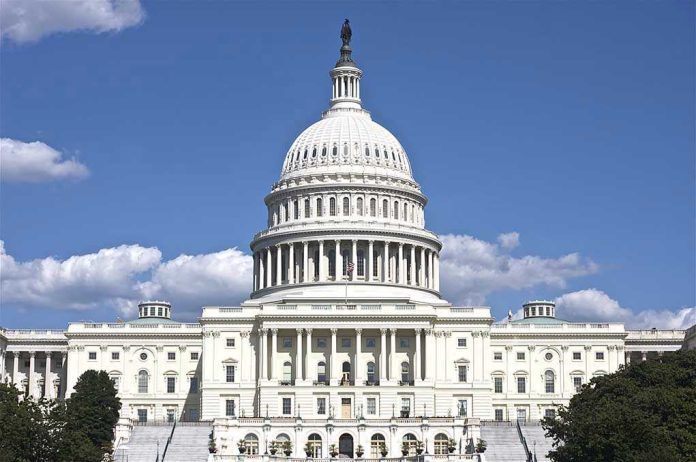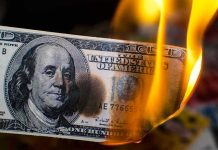
When a Russian-sourced report on the JFK assassination lands in the hands of a Trump-endorsed congresswoman leading a federal secrets task force, the question isn’t just what’s inside—but why now, and who stands to gain from the chaos unleashed.
Story Snapshot
- A Russian intelligence report on JFK’s assassination has been delivered directly to Congresswoman Anna Paulina Luna, a prominent Trump ally now heading a new federal declassification task force.
- Luna’s role, and the foreign provenance of the report, have ignited fierce debate about the integrity of congressional investigations and foreign influence on U.S. historical narratives.
- The unprecedented move comes amid a fresh executive order by Donald Trump demanding the release of secrets tied to JFK, RFK, MLK, UAPs, and other controversial files.
- Experts warn of disinformation risks and political manipulation as the authenticity and impact of the Russian report remain under scrutiny.
JFK’s Shadow: Why Old Secrets Still Burn
Few events in American memory inspire as much suspicion, debate, and mythmaking as the assassination of John F. Kennedy. Yet, over sixty years later, the files remain a battleground. This fall, that battleground became international. Anna Paulina Luna, the Florida congresswoman with Trump’s stamp of approval, is now the public face of an explosive new push to open every classified vault tied to the nation’s most infamous crimes. Her latest acquisition—an alleged Russian intelligence dossier on the JFK shooting—has the media, and Washington insiders, scrambling. The story isn’t just about what’s in that report. It’s about the rules of the game: who writes history, who controls the secrets, and how foreign actors hope to tip the scales.
Luna’s appointment to lead the House Oversight Task Force arrived in February 2025, courtesy of Speaker Mike Johnson and a fresh executive order by Donald Trump. The directive? Drag the nation’s deepest secrets—JFK, RFK, MLK assassinations, UAPs, and even Epstein—into the sunlight. The move was crafted for maximum political theater and calculated disruption, with Luna’s background in conservative activism and media ensuring the hearings would be anything but dull. By September, the task force’s scope ballooned to include whistleblower protections and UFO transparency, keeping the public’s appetite for revelation well-fed. But nothing prepared the Hill for the moment Luna accepted a Russian-sourced file on the Kennedy killing, triggering a fresh wave of scrutiny and speculation.
Foreign Hands on the Kennedy Files: What Changed?
This isn’t the first time questions of foreign interference have shadowed American investigations. What’s different now is the direct pipeline: a Russian document, formally handed to a sitting member of Congress, becomes evidence in an ongoing federal inquiry. The implications are as unsettling as they are unprecedented. On one hand, Luna’s supporters see a crusader against government secrecy, determined to break the grip of the so-called “deep state.” On the other, critics argue the move opens the floodgates to foreign disinformation and the deliberate seeding of alternative narratives into the heart of American politics.
Forget the Epstein files, Trump-fav Anna Paulina Luna was just handed ‘report on JFK’s assassination’ — from the Russians! https://t.co/9LFaUCKYzN
— Andrew Feinberg (@AndrewFeinberg) October 15, 2025
Luna has wasted no time challenging official accounts, publicly casting doubt on the Warren Commission’s single-bullet theory and asserting her belief in multiple shooters. For many, the Russian report is a poisoned chalice: its mere existence raises the stakes, making every new revelation a potential tool in the hands of both conspiracy theorists and hostile foreign actors. Intelligence veterans and historians alike urge caution, warning that any material from Russian sources must be subjected to rigorous authentication to avoid repeating the mistakes of past disinformation campaigns.
The Political Stakes: Transparency, Power, and the Price of Truth
The calculus of power around the JFK files is shifting. Trump’s executive order and Luna’s leadership signal a broader assault on official secrecy, a move calculated to energize conservative voters and challenge establishment narratives. For the intelligence community and federal archivists, the sudden influx of foreign evidence is a logistical and political nightmare—every page must be vetted, every claim cross-checked. The cost of getting it wrong isn’t just historical inaccuracy; it’s a further erosion of public trust in America’s institutions and a victory for those who profit from confusion.
Media coverage has surged, with every new twist dissected in real time. Supporters of full declassification argue that only total transparency can restore faith in government, while skeptics warn that releasing unverified or manipulated files could do more harm than good. The broader debate is no longer just about JFK. It’s about the boundaries of congressional power, the vulnerability of American discourse to foreign influence, and the limits of public appetite for the truth—however messy, incomplete, or inconvenient it may be.
What’s Next for the JFK Files—and American Memory?
The task force’s review of the Russian report is ongoing. Public hearings, press conferences, and behind-the-scenes vetting are now regular features of the Capitol’s calendar. No official word yet on the authenticity or significance of the Russian document, but that hasn’t stopped speculation from dominating headlines and social media. For Luna, the stakes are personal and political: deliver genuine revelations, and her star rises; stumble, and critics will charge that she’s been played by foreign interests, undermining the very cause she claims to champion.
The story of the JFK assassination has always been a story about trust—who has it, who deserves it, and how easily it can be lost. As old secrets collide with new agendas and foreign hands reach deeper into the vault, the real question may not be whether America can handle the truth, but whether it can recognize it when it finally emerges from the shadows.



